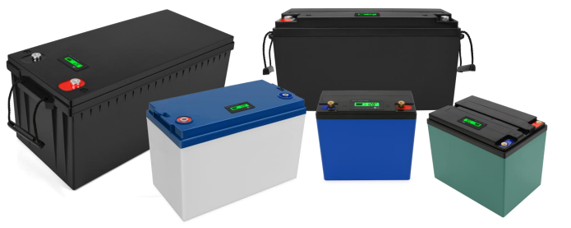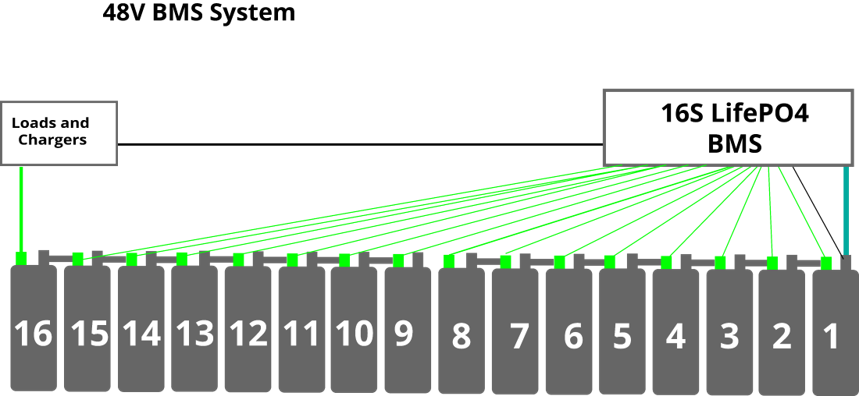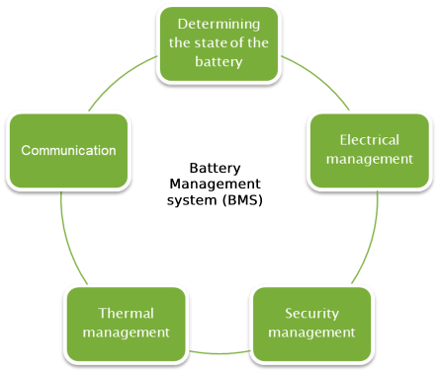About batteries
Behind Every Great Technology
The Right Battery

Present at the heart of almost every electronic device, batteries are the most widely used component in this entire industry. And with the advancement of technology, many types of batteries emerge to keep up with the growing need for energy.
At UXV CENTER GmbH , we are aware of the importance of these sources of energy and their wide applications in the modern life. That’s why we are able to produce diverse types of batteries, at an affordable cost.
LIFEPO4: A POWERFUL TECHNOLOGY

Lithium Iron Phosphate battery technology (LIFePO4) represents one of the most powerful storage technologies available today.
It is characterized by:
A high level of energy density,
A fast charge,
Low self-discharge,
A long lifetime (> 2000),
Wide temperature range -20°C~60°C
Light weight
Safe to use
LIFEPO4 BATTERIES WITH MULTIPLE BENEFITS
The LIFePO4 battery is the ideal battery that can meet all your consumption requirements. Its efficiency is higher than the ordinary plumb batteries






| LIFEPO4 | PLUMB (ACIDE/GEL) | |
| CHARGE | 50 % charged in 25 minutes. | From 6 to 8 hours |
| WEIGHT | 6kg per kWh | 30kg per kWh |
| MAINTENANCE | No maintenance costs | High installation & maintenance costs . structure + gas elimination +Water demineralization |
| LIFE SPAN | > 2000 cycles | 200 to 400 cycles |
| SECURITY & EMISSIONS | Very low toxicity for the environment, and has control systems to protect the battery | No associated safety device, Risk of explosion, polluting |
HIGHLY SECURE LIFEPO4 BATTERIES

To ensure a high level of safety, it is necessary to prevent thermal runaway. An electronic battery management system (BMS) continuously monitors the battery and isolates it in case of troubles.
to prevent any risk of damage to the battery. By using the BMS, the battery will last longer and operate more safely.

1. DETERMINATION OF BATTERY STATUS
It is an important parameter that
allows to estimate the battery
life. It is determined via : State of
Charge (SoC) and State of Health
(SoH). These parameters
influence the internal and
external parameters of the
battery (temperature, load
characteristics, etc.).
2. ELECTRICAL MANAGEMENT
The electrical management is
responsible for:
- The control of the charging
process - Control of the discharge
process - Cell balancing
3. SECURITY MANAGEMENT
Safety management protects the battery from critical operating conditions:
- Protection of single cells
against
overcharge/discharge - Temperature protection
(thermal runaway) - The battery switches off in
case of an incident
4. THERMAL MANAGEMENT
A thermal management
system is required for high
temperature (high power)
batteries. It ensures:
- Temperature equalization
between the cells. - Cooling/heating of the
battery.
5. COMMUNICATION
different interface systems can
be used for data exchange:
Display screen
RS 232/RS 485 interface
I²C (Inter-Integrated Circuit)
SPI (Serial Peripheral Interface)
Bluetooth (mobile application)
what types of devices,
do we produce batteries for?
Our business motto is «if you need it, we have it ».
Because at UXV CENTER GmbH , we have the required technology and minds to produce a wide range of battery products.











Customize your battery pack,
at your ease
UXV CENTER GmbH can also facilitate custom battery solutions presented to you by our team of engineers. The UXV CENTER GmbH team carefully considers and evaluates each customer’s requirements and selects the proper electronic safety, monitoring, and charge control circuitry to optimize your custom battery solution.
Here are some parameters that we can control,
at your demand, to provide you with the best
suitable battery for your business:
| Parameter | Specifications |
|---|---|
| ENERGY DENSITY | The energy density is the total amount of energy that can be stored per unit mass or volume. This determines how long your device rests on before it needs a recharge. |
| POWER DENSITY | Maximum rate of energy discharge per unit mass or volume. Low power: laptop, i-pod. High power: power tools. |
| SAFETY | At high temperatures, certain battery components will break down and can undergo exothermic reactions. High temperatures generally reduce the performance of most batteries. |
| LIFE CYCLE DURABILITY | The stability of energy density and power density of a battery with repeated cycling (charging and discharging) is needed for the long battery life required by most applications. |

